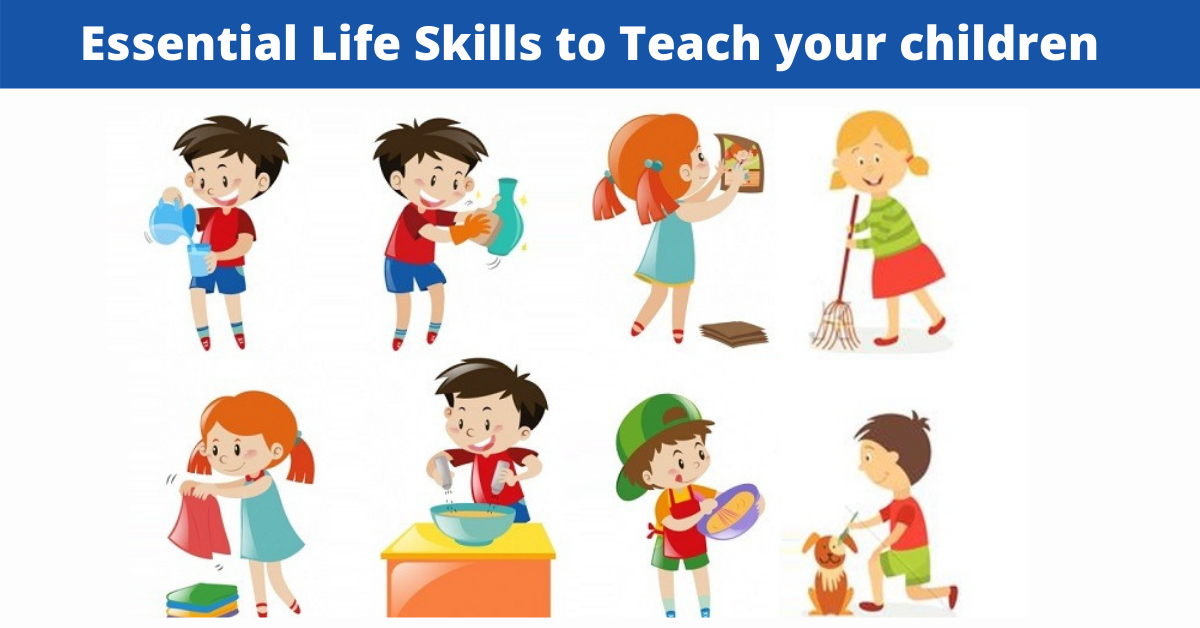Encourage your child to be independent from a very early age. We tell you how to teach basic life skills to your preschooler child to help him/her manage simple, daily activities by themselves.
Children can learn basic life skills from a very young age, so that they become self-reliant adults. Doing little things on their own, develops their confidence and helps boost their self-image in the long run.
What are life skills?
Life skills are essentially any skills that are necessary or useful to manage an individual’s daily life. These can be either acquired through learning or through real life experiences. These include mental abilities like resilience, problem-solving and decision-making skills; social abilities like communication and collaboration; and physical abilities like swimming, cycling and driving.
What Are the Most Important Life Skills for Kids for a good future?
1. Basic Self-defence:
All of you will agree that in today’s world especially, safety is of utmost importance, and developing self-defence not only makes the child feel more independent, but also more confident.
Most of the schools nowadays invest in teaching basic self-defence to children. But if your child’s school does not, don’t hesitate to send them for classes outside.
2. First-aid and the importance of health:
It is not possible to always be around your child whenever he/she gets hurt, a bite or a rash! So empower them such that they are able to take care in case of an emergency until they grow-up. Similarly it is also important teaching your child to take care of their health. Instead of forcing your child to eat vegetables, talk to them about health risks in eating junk food all the time and explain how the healthy food will benefit them in a way that they can apply to themselves.
3. Make them do their own work:
Staying organised – having everything in its right place – can make people more successful at any given task.
Be it putting their school bag together or taking the plate to the kitchen, ensure your child is ‘responsible’ for their work. Teach these skills now, before it’s too late!
4. Managing money & basic budgeting:
Want to teach your child a life skill that could literally make or break their future? Teach them about money.
Give your children a certain amount of pocket money as a weekly or monthly allowance that they have to use for their expenses. This kind of budgeting training develops a habit in your child to not waste money and to respect its value.
5. How to shop:
Always take your child grocery shopping with you. Once your child knows where the different categories of items are shelved, give them a basket and ask them to get a few easy-to-find things for you.
You can also keep your kid in charge of buying a few things every month. Examples of this would be snacks and juices. Once done, teach them how to pay for it!
And the most important point — don’t forget to model smart shopping yourself!
6. Involve them in simple cooking:
Teaching kids this life skill often means setting them up for a healthier diet in the future.
The first step in making kids comfortable in the kitchen is give them safe and easy-to-use tools and gadgets.
Start with simple things! Teach your child how to make their own peanut butter and jam sandwiches, teach them how to butter a slice of bread, and how to make a salad.
You can also get them to help you with baking, with handing you ingredients while you cook or with keeping the kitchen table clean while you’re preparing a meal.
7. Importance of environmental preservation:
Instill the importance of environment and sustainability at an early age which will teach your child to be more loving towards our planet. Teach your kid why preserving the environment is essential by making lifestyle changes at home. Get them to practise eco-friendly habits in everything they do to keep the planet green.
8. Cleaning and other household chores:
One of the best ways to teach kids how to clean and take care of a house is through chores. Start small by just asking them to keep their room clean, make their bed, and make sure everything they own is in its right place. You can then ask them to clean the dishes that they use to eat after eating as well.
Beyond learning practical tasks such as how to clean a toilet or mop a floor, chores are also shown to help kids academically, emotionally, and professionally.
9. Using Goole Maps and Navigation:
Not every kid lives in a city, but whenever possible it’s helpful to teach kids how to navigate public transportation on their own. This can be accomplished by getting kids involved when navigating a map.
10. Resilience & Adaptability:
Another important skill would be to teach your child to be resilient and adaptable. Ensuring you don’t feed your child with solutions all the time. Empower your child to problem-solve by themselves so that they’re ready to face challenges as and when they come. They must learn resilience to adapt to different changes and different environments.

